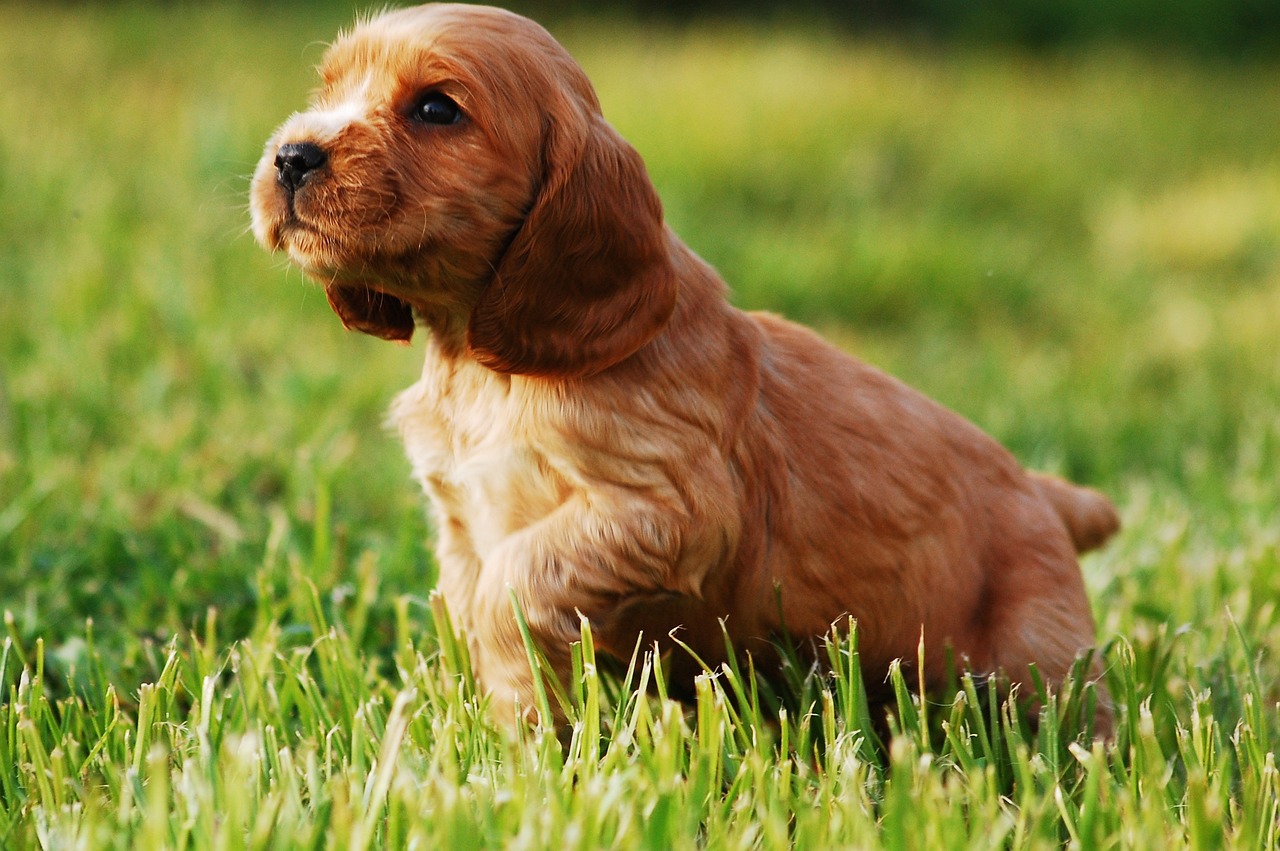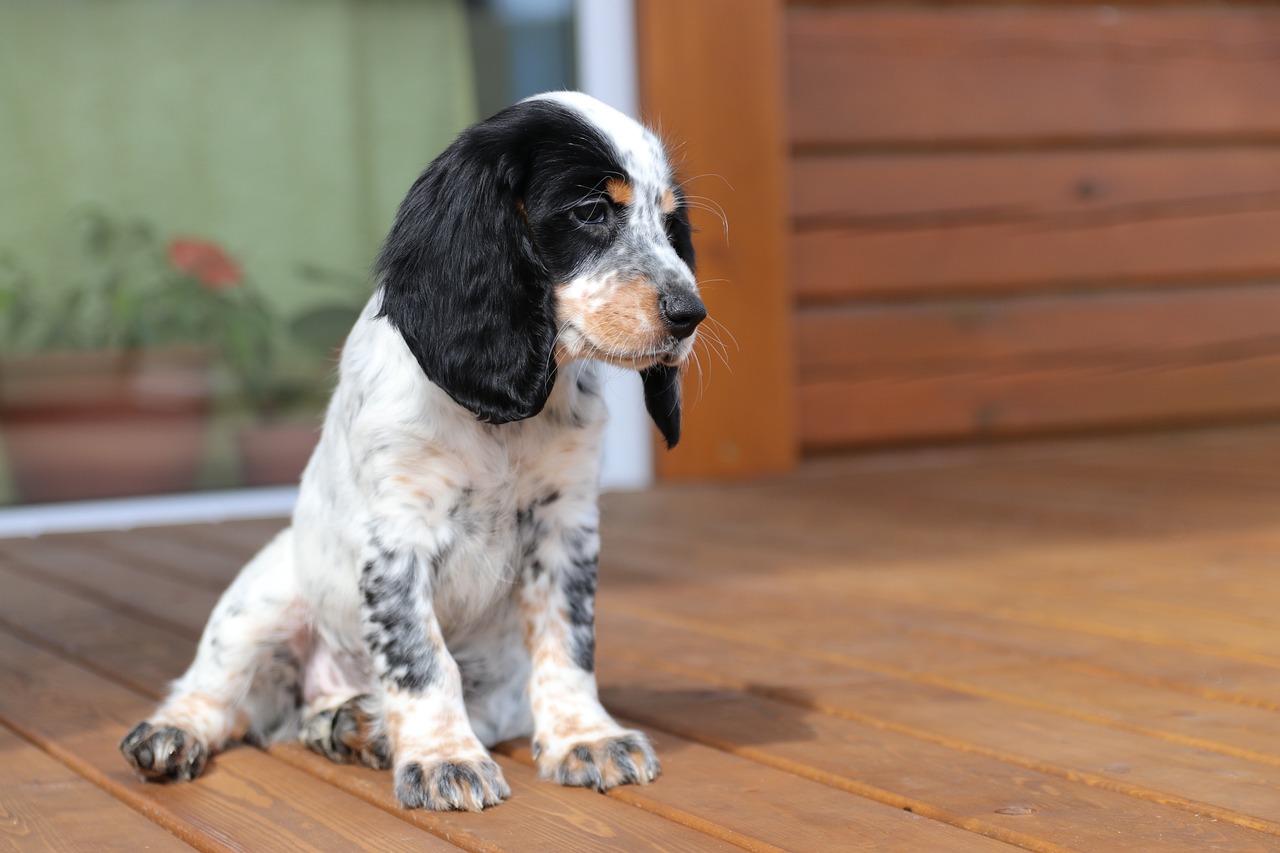The early stages of a Cocker Spaniel puppy’s life are instrumental in ensuring they grow up to be sociable, confident, and well-adjusted adults. Cocker Spaniels, known for their gentle disposition and boundless energy, benefit greatly from early and positive socialization experiences.
The Right Ways to Socialize a Cocker Spaniel Puppy
 Here are the ideal steps to ensure your Cocker Spaniel puppy is properly socialized:
Here are the ideal steps to ensure your Cocker Spaniel puppy is properly socialized:
-
Start Early, But Gently:
- Start the socialization process when your Cocker Spaniel puppy is between 3 to 14 weeks old. This is their most impressionable phase.
-
Frequent Human Interaction:
- Regularly introduce your Cocker Spaniel puppy to different people — including children, seniors, and people wearing hats or uniforms — ensuring each encounter is positive.
-
Puppy Play Dates:
- Organize play sessions with other vaccinated puppies or gentle adult dogs. This helps your Cocker Spaniel puppy learn proper dog-to-dog behaviors.
-
Introduce Various Environments:
- Take your Cocker Spaniel puppy to various places — parks, pet-friendly stores, car rides, and different types of terrain like grass, tiles, and sand.
-
Expose to Common Noises:
- Acquaint your Cocker Spaniel puppy with household and outdoor sounds such as the vacuum cleaner, doorbell, children playing, and traffic noises. Start at a low volume and gradually increase it.
-
Positive Reinforcement:
- Whenever your Cocker Spaniel puppy reacts calmly or shows curiosity toward a new experience, reward them with treats or praise. Positive associations are essential.
-
Safe Exploration:
- Allow your Cocker Spaniel puppy to explore their surroundings, sniffing and investigating, but always under supervision to ensure they’re safe.
-
Gentle Handling:
- Regularly touch and handle all parts of your Cocker Spaniel puppy’s body. This includes their paws, ears, and mouth, preparing them for future vet visits and grooming sessions.
-
Introduce to Various Objects:
- Familiarize your Cocker Spaniel puppy with everyday objects like bags, boxes, umbrellas, and bicycles. This helps reduce the fear of unfamiliar items in the future.
-
Consistent Training Sessions:
- Keep socialization sessions short but frequent. Consistency is vital in reinforcing positive behavior.
-
Use Controlled Environments:
- Begin socializing in quieter environments, then gradually expose your Cocker Spaniel puppy to more stimulating places. This step-by-step approach avoids overwhelming them.
-
Watch for Fear Signs:
- Always observe your Cocker Spaniel puppy’s body language. If they show signs of fear or anxiety, it’s crucial to backtrack and introduce the stimulus more gradually.
-
Invite Guests Over:
- Have friends and family visit your home to expose your Cocker Spaniel puppy to guests, ensuring they become comfortable with people coming and going.
-
Avoid Negative Experiences:
- Always ensure that socialization experiences are positive. A traumatic event can have a lasting impact, so it’s vital to prevent negative encounters.
-
Invest in Obedience Training:
- Structured training sessions play a crucial role in reinforcing positive behaviors and curbing undesirable ones. Obedience training provides a foundation for a well-behaved adult dog.
- Recommendation: To set your Cocker Spaniel puppy up for success, consider enrolling them in a structured training program. Two highly recommended courses are SpiritDog’s Ultimate Puppy Training Program and the K9 Training Institute’s Dog Masterclass. These programs offer valuable insights and proven techniques to guide you through the socialization process effectively.
The Wrong Ways to Socialize a Cocker Spaniel Puppy
 Proper socialization of a Cocker Spaniel puppy is essential to its development and well-being. However, many well-intentioned dog owners sometimes make mistakes in the process. Avoiding common pitfalls can prevent behavioral issues and ensure a confident, well-adjusted adult Cocker Spaniel. Below are recommendations on what not to do when socializing your Cocker Spaniel puppy:
Proper socialization of a Cocker Spaniel puppy is essential to its development and well-being. However, many well-intentioned dog owners sometimes make mistakes in the process. Avoiding common pitfalls can prevent behavioral issues and ensure a confident, well-adjusted adult Cocker Spaniel. Below are recommendations on what not to do when socializing your Cocker Spaniel puppy:
-
Delaying Socialization:
- Waiting until the Cocker Spaniel puppy is several months old before beginning socialization can result in missed opportunities to shape positive behaviors and reactions.
-
Overwhelming Environments:
- Taking your Cocker Spaniel puppy into overly chaotic or noisy environments without prior acclimatization can lead to fear and anxiety.
-
Forcing Interactions:
- Pushing your Cocker Spaniel puppy to interact with other animals or people, especially when they’re showing signs of discomfort, can reinforce negative associations.
-
Neglecting Varied Experiences:
- Exposing your Cocker Spaniel puppy only to a limited set of experiences or environments can lead to unfamiliarity and anxiety when faced with new situations in the future.
-
Using Negative Reinforcement:
- Scolding or punishing your Cocker Spaniel puppy during socialization can create negative associations with new experiences or stimuli.
-
Ignoring Fear Signals:
- Not paying attention to signs of distress or fear in your Cocker Spaniel puppy can lead to traumatic experiences. Signs include tucking the tail, lowering the body, avoidance, or excessive barking.
-
Not Introducing Household Sounds:
- Failing to acquaint your Cocker Spaniel puppy with common household noises can lead to fear or stress when they later encounter these sounds.
-
Avoiding Touch:
- Not handling or touching your Cocker Spaniel puppy regularly can result in discomfort or fear during grooming sessions or veterinary visits.
-
Using Only Treats for Socialization:
- Solely relying on treats without pairing them with praises or positive reinforcement can lead to an overdependence on food rewards.
-
Inconsistent Rules and Boundaries:
- Changing rules or boundaries during the socialization period can confuse your Cocker Spaniel puppy and lead to inconsistent behaviors.
-
Failing to Monitor Play:
- Allowing your Cocker Spaniel puppy to play unsupervised or with aggressive dogs can lead to negative experiences or the development of poor play habits.
-
Skipping Vet and Groomer Acclimatization:
- Not familiarizing your Cocker Spaniel puppy with the experiences of vet visits or grooming can cause these necessary events to become traumatic.
-
Socializing Only in One Environment:
- Restricting socialization to only one environment, like your home, can lead to a Cocker Spaniel puppy that’s not well-adjusted to different settings.
-
Not Seeking Expert Advice:
- Assuming you know best without consulting expert resources or dog trainers can lead to missed opportunities or mistakes in the socialization process.
-
Neglecting Obedience Training:
- Assuming that socialization alone is enough and overlooking the importance of structured obedience training can lead to behavioral issues in adulthood.
Consider Online Dog Training for Your Cocker Spaniel Puppy
Our 2 favorite online courses are:
1. SpiritDog’s “Perfect Obedience” Course
The Perfect Dog Obedience Bundle is an online dog training program designed to help dog owners achieve well-behaved pets. The comprehensive course covers basic obedience, loose leash walking, and includes bonus mini-courses on training habits and rewards, stopping jumping, and separation anxiety solutions. With lifetime access to expert trainers for personalized feedback and a 60-day money-back guarantee, this course aims to provide effective, accessible training for a variety of dog behavior issues.
2. K9 Training Institute’s “Dog Masterclass”
More than just an obedience course, this more comprehensive training course tackles any behavior problem you might face with your dog.
In conclusion, while the intention behind socializing a Cocker Spaniel puppy is always for their best interests, it’s essential to be aware of common mistakes. Proper socialization is a balance of positive exposures, consistent training, and ensuring the puppy’s comfort. By avoiding the pitfalls listed above, you’ll be setting your Cocker Spaniel puppy up for a life of confidence, joy, and positive interactions.


 Toledo, United States.
Toledo, United States.